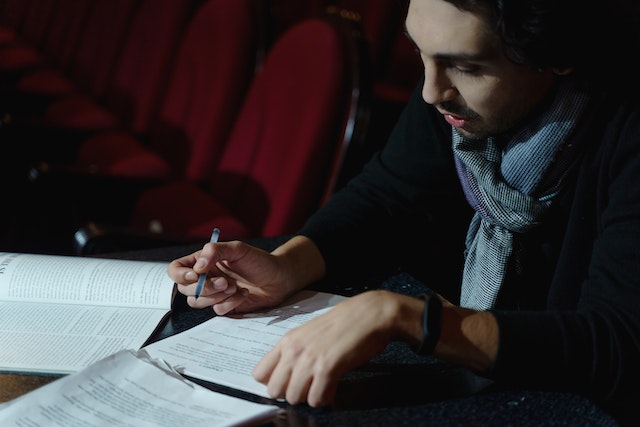Arts and culture journalism is a vibrant field that offers exciting opportunities for individuals passionate about the arts, entertainment, and the cultural landscape. With the rise of digital media and the increasing demand for unique and engaging content, specializing in arts and culture journalism can open doors to a fulfilling career.
1. Understanding Arts and Culture Journalism
Arts and culture journalism involves reporting and analyzing events, trends, and personalities in the world of arts, including visual arts, performing arts, literature, film, music, and more. It goes beyond mere reporting and delves into critical analysis, storytelling, and providing insights to the audience. Arts and culture journalists play a crucial role in shaping public opinion, promoting artists and their work, and fostering a deeper understanding and appreciation of the arts.
2. Skills Required for Arts and Culture Journalism
To excel in arts and culture journalism, certain skills are essential:
- Strong Writing Skills: As in any form of journalism, strong writing skills are crucial for arts and culture journalists. They must be able to write engaging and informative articles, reviews, interviews, and features that captivate readers and convey the essence of the subject matter.
- Research Skills: Arts and culture journalists must have excellent research skills to gather information, background knowledge, and insights about artists, exhibitions, performances, and cultural events. Thorough research helps in creating well-informed and accurate content.
- Analytical Thinking: Arts and culture journalists need to think critically and analyze the artistic merits, significance, and impact of various creative works. They should be able to provide thoughtful perspectives and evaluations that resonate with their audience.
- Networking: Building a strong network within the arts and culture industry is vital for arts journalists. Attending events, establishing relationships with artists, curators, and industry professionals can provide access to exclusive stories and opportunities.
- Multimedia Skills: In the digital age, arts and culture journalists should be adept at utilizing various multimedia platforms to tell stories effectively. Knowledge of photography, videography, podcasting, and social media can greatly enhance their journalistic endeavors.
3. Career Paths in Arts and Culture Journalism
Specializing in arts and culture journalism can lead to diverse career paths. Here are a few potential roles:
- Arts Critic: Arts critics review and critique various art forms, including exhibitions, performances, films, and literature. They provide insightful analysis and judgment to guide the audience in their cultural experiences.
- Feature Writer: Feature writers delve into in-depth stories, profiles, and interviews with artists, cultural figures, and industry insiders. They explore the personal journeys, inspirations, and challenges faced by individuals in the arts and culture sector.
- Arts Reporter: Arts reporters cover breaking news, events, and trends in the arts and culture world. They attend press conferences, conduct interviews, and write articles that inform the audience about the latest happenings in the industry.
- Editor: Editors in arts and culture journalism oversee the content creation process, ensuring accuracy, quality, and adherence to the publication’s style and guidelines. They work closely with writers, assigning articles, providing feedback, and shaping the overall editorial direction.
- Curator or Cultural Manager: Some arts journalists transition into curatorial or cultural management roles, where they curate exhibitions, manage cultural institutions, or organize events and festivals. Their journalistic background allows them to bring a unique perspective to these positions.
4. Pursuing Education and Training
While a formal education in journalism or a related field can provide a solid foundation, it is not always a prerequisite for entering the world of arts and culture journalism. However, specialized programs and courses can offer valuable skills and industry connections. Institutions like New York University (NYU), Parsons School of Design, and Fashion Institute of Technology (FIT) offer programs in journalism, arts, and cultural management.
For those seeking a more flexible and accessible learning option, online courses like those offered by Yellowbrick can provide valuable insights and practical knowledge in arts and culture journalism. These courses cover various aspects of the field, including writing techniques, critical analysis, and multimedia storytelling.
Conclusion
Remember, the world of arts and culture is ever-evolving, and staying updated with the latest trends and developments is crucial for success in this field. So, embrace your passion for the arts, hone your skills, and embark on a rewarding journey as an arts and culture journalist.
Key Takeaways:
- Arts and culture journalism offers exciting opportunities for individuals passionate about the arts and entertainment industry.
- Strong writing skills, research abilities, analytical thinking, networking, and multimedia proficiency are essential for success in this field.
- Career paths in arts and culture journalism include art critic, feature writer, arts reporter, editor, and curator or cultural manager.
- While a formal education is not always necessary, specialized programs and courses can provide valuable skills and industry connections.
- Online courses, such as those offered by Yellowbrick, offer flexible and accessible learning options for aspiring arts and culture journalists.
- Pursuing a career in arts and culture journalism can be fulfilling and impactful, shaping the narrative and promoting the arts to a wider audience.
Consider taking the NYU | Modern Journalism online course and certificate program to further enhance your skills and knowledge in arts and culture journalism. This program, offered by New York University, provides valuable insights and practical training to help you succeed in this dynamic field. Start your journey today and unlock the exciting possibilities that await you as an arts and culture journalist.






